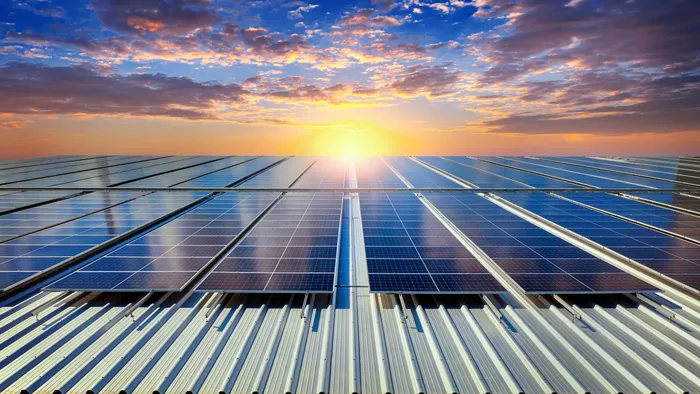Tariffs up, resilience down: Why scaling renewable energy is a business imperative

Looking ahead, Africa’s solar landscape is set to evolve rapidly, says the author.
Image: Freepik
As South Africans brace for yet another round of electricity tariff hikes, with Nersa announcing increases of 8.76% in 2026/27 and 8.83% the following year, the business community is facing mounting pressure. Operational expenses will rise further, while persistent grid instability disrupts planning and productivity. At the same time, unpredictable weather patterns, from heavy rains to extreme heat, are straining an already fragile grid. Against this backdrop, the urgency for businesses to accelerate investment in renewable energy has never been greater.
The demand for renewable energy in South Africa is rising and shows no signs of slowing down. Across the region, persistent electricity shortages have triggered a surge in alternative power generation. While hydrogen and gas-fired plants play a role, renewables hold a clear edge thanks to shorter construction timelines and faster deployment. Solar power, in particular, is leading this growth. Projections suggest an annual expansion of 7.38% between 2025 and 2029. By the end of 2024, more than 2.3 GW had been added through utility-scale plants, while rooftop systems reached 5.8 GW2.
Momentum is evident across every market segment, with utility-scale projects most notably advancing through government-led procurement. Businesses are increasingly investing in commercial and industrial installations, drawn by energy security, cost savings and efficiency gains. Residential solar adoption has surged too, moving from under 1 GW in 2022 to an anticipated 2.3 GW this year2. Unlike during the height of the energy crisis, business adoption is now driven less by necessity and more by long-term strategy, efficiency, and environmental commitment.
However, the shift brings challenges of its own. Despite government’s support of BESS deployment, several obstacles continue to slow progress. Financially, the high upfront investment cost makes funding a major challenge. From a regulatory perspective, South Africa’s stringent localisation requirements place significant responsibility on the EPC side. On the technical and operational front, the increasing weight of larger-capacity battery cabinets creates transport difficulties, particularly for project sites in remote areas. Addressing these hurdles will require stronger policy support, sustained skills development, and deliberate knowledge transfer to build a resilient, locally grounded ecosystem.
Looking ahead, Africa’s solar landscape is set to evolve rapidly. Four trends will shape its trajectory, including scaling up deployment to meet demand; innovating financing to unlock wider access; enhancing storage for reliability; and moving toward integrated energy systems, where hybrid and off-grid solutions will play a pivotal role in electrifying rural areas.
Yet scaling deployment alone is not enough. As Africa, and South Africa in particular, confront the realities of climate change, the question is not just how fast renewable energy can grow, but how resilient it can remain. Severe weather events and soaring temperatures are putting infrastructure to the test, where, in parts of Africa, summer temperatures are already exceeding 40°C. Such extremes accelerate wear on photovoltaic modules and stress inverter systems, threatening efficiency and shortening lifespans. Energy storage plants face mounting auxiliary costs just to remain stable under these conditions.
This demands renewable solutions engineered with resilience at their core. Advanced cooling, durable protective materials and smarter thermal management are becoming non-negotiable. Designs that resist sandstorms, prevent heat recirculation, and minimise auxiliary power use are critical to lowering risks, reducing costs and protecting long-term investments.
For South Africa, embedding these capabilities is vital not only to secure energy security at home but also to keep pace with the continent’s accelerating renewable trajectory. Businesses and utilities that invest in resilient energy systems will be best placed to withstand harsher climates while supporting the global shift to sustainability. Those who scale up decisively today will insulate themselves from escalating expenses, gain a competitive edge, and help shape an economy built for the future.
Nigel Sun, Head of Sub-Saharan Africa at Sungrow
*** The views expressed here do not necessarily represent those of Independent Media or IOL.
BUSINESS REPORT